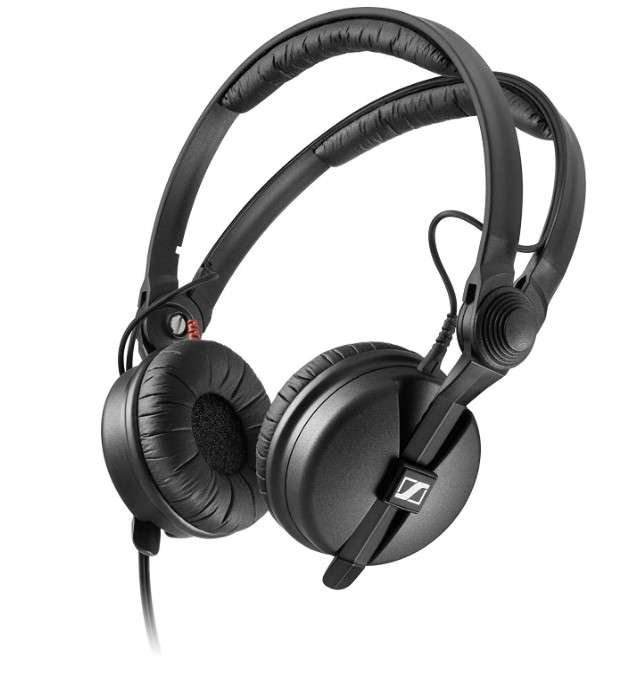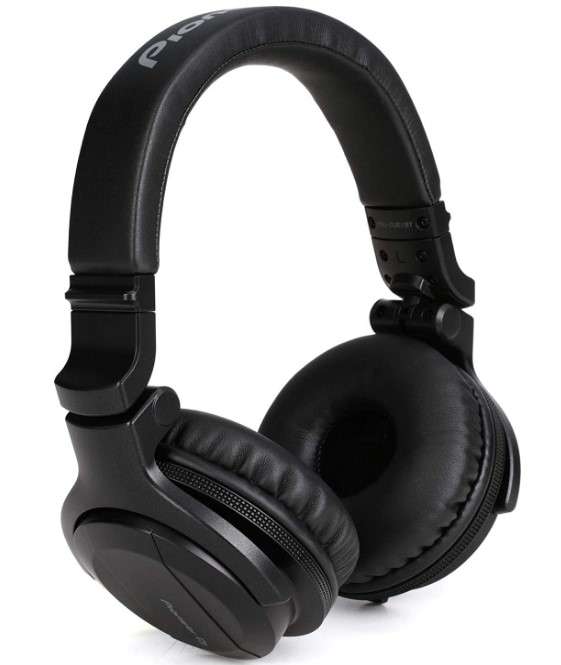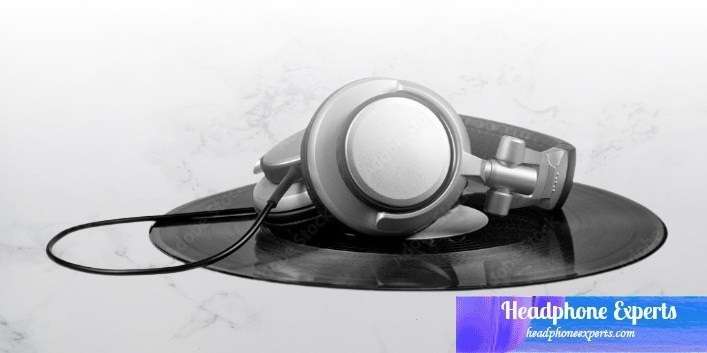A disc jockey is responsible for playing recorded melodies at entertainment venues and introducing guests to them. In addition to DJs, entertainers are also referred to as DJs.
Listening to music is not the only use for headphones, as you can also play games, do video conferencing, and make telephone calls using them.
In addition to helping DJs mix music, they can also help them in a variety of ways when mixing for their audiences, which we will explore in this review.
In this post, we will cover:-
- Types of Djs
- Top Reason Why Djs Wear Headphones When Djing
- How Djs Wear Headphones
- Do digital DJs Need Headphones Anymore?
- How do DJs mix Without Headphones?
- Best DJs Headphones
1. Types of Djs
In order to understand how DJs perform their roles, it is imperative to understand that they belong to three different categories. Which ones are they?
Radio DJs are those who present shows on music radio stations.
Club DJs are those that play at music festivals or nightclubs.
Mobile DJs are those who are appointed to perform at both public and private events, including weddings, parties, and festivals of all kinds.
2. Top reason why Djs wear Headphones When Djing
Almost everyone has seen DJs wearing headphones while mixing music in large musical performances, nightclubs, and parties.
In contrast to what most people assume, DJs actually use headphones for very different reasons than blocking out loudspeakers and protecting their ears from crowd noise. But it doesn’t end there; experienced DJs may be able to perform without headphones in certain situations. Even so, wearing them is definitely a worthwhile idea for beginners.
1. Cueing
In case you’re unfamiliar with the term, cueing simply refers to determining when the DJ wants the music he’s mixing to begin. This is done by determining when the music is currently playing in front of the audience. The use of headphones by DJs is largely driven by cueing.
Listening to the crowd is not necessary for DJs; they are only required to listen to the song they want to mix. The rhythm of two distinct songs must be synchronized and synchronized with one another during a mix. Having headphones gives DJs the edge they need to change tracks without revealing their choices to the crowd.
In addition to the song playing on the main system, which can be heard by the audience, the second song is audible in his headphones. It is this song that he will mix into the main loop. As a result of the headphones, they are able to hear better and concentrate on their mix. For the DJs to create the ideal mix, both tracks must be played at the same pace and have the same rhythm.
During the transition, the DJ will turn up the volume of the following track to ensure that both songs are played simultaneously.
One of the reasons DJs need headphones when spinning records is because cueing involves listening.
2. To Enable the Dj to have Clarity of sound when playing in Loud Environment
Crowd clapping and background music may make it difficult for the DJ to mix clearly in noisy settings like clubs. Due to the size and shape of many venues and clubs, delays might occur due to the location of the DJ booth and the speaker. DJs can find it difficult to match songs properly as a result of these challenges.
It is crucial for DJs to have headphones because they ensure that their sound is clean, delay-free, and distortion-free.
3 No DJ Software
Music mixing equipment used by DJs includes software that allows you to mix music without wearing headphones. A visual audio track is used to accomplish this, which indicates the movement of the beats when the play button is pressed.
When DJs mixed music using vinyl records, headphones were essential to getting the rhythm right. When it comes to beat matching, headphones should always be used as a cornerstone. When blending sounds together, an audio track is much more effective as a backup.
4. Djs Dress code
Although professional DJs can perform flawlessly without headphones, they are also worn as fashion accessories in some cases. In addition to their DJ attire, DJs are required to wear stylish headphones. Despite their professional and stylish appearance, these headphones are extremely appreciated and respected.
5. Checking the sound quality of a song to be played next
When it comes to determining how clear and loud the music is, headphones play a very significant role.
It occurs when the DJ cues the next song so that it can be mixed with the one currently playing. In this case, the DJ will be able to decide whether to change the gain or not.
Gain is the amount of amplification applied to the selected music. You can use this technique to determine if the next track will blend seamlessly with the one you’re playing. In addition, you can determine if it will have a noticeable difference in sound level.
Another technique is to monitor the sound level on the DJ console. Signals are sent by LEDs based on their decibel values. Their purpose is to provide information about the audio quality of monitor speakers.
4. How Djs Wear Headphones
It is common for professional DJs to wear a variety of headphones at big events where they perform. It depends mainly on their style and way of mixing
The following is a detailed description of how DJs wear their headphones
1 DJ Wearing Headphones on Both Years normal
Listening to and preparing the following track is much easier when you are not distracted by the audience’s sound. As a result, both years are covered by your headphones.
Also, DJs will be able to mix more easily without having to use monitor speakers.
Pro
The most effective acoustic insulation is made possible
Con
It is mandatory for DJs to remove their headphones between prelisten’s
When you have to remove your headphones after pre-listening, either by placing them around your neck or putting them down next to the tan tables, it can be exhausting. In particular, when a DJ plays vinyl, every three minutes
Listening to your mix for both years effectively isolates you from the outside world. The DJ will be the last to know if something significant occurs (skipping vinyl, a problem in the mixing software, or a reduction in volume on the front panel).
2. Placing headphones on one year
The DJ may utilize the monitors to listen to the other music he is mixing with when he uses one year to cue and mix songs for the crowd. This also gives him the ability to interact directly with the environment around him while doing his mixing.
Pro
He is in a position to identify any problem very fast
Cons
Headphones can easily fall while in the middle of mixing
3. Placing the headphone horizontally with the hoop on the forehead
It doesn’t get any better than this. On top of the skull, the headband rests on the temple, while the earpiece rests on the forehead
5. Do digital DJs Need Headphones Anymore?
In DJing, headphones are typically used for listening to tracks privately while previewing them. Music can be completely listened to by a DJ without being played to the audience.
A DJ uses headphones to adjust the pace of the music so that it corresponds with the pace of the music. In response to the question of whether digital DJs still use headphones, the answer is yes.
The mixing of music digitally is relatively easy, but DJs most often use software to assist them during the process while displaying audio patterns on the screen.
Without headphones, DJs will be unable to continue mixing music if software failure occurs. In this way, headphones are essential for all DJs, regardless of whether they use vinyl or digital equipment.
6. How do DJs mix Without Headphones?
Experienced DJs know which tracks have the same BPM and mix them easily because they play them frequently.
DJing without headphones makes you look like an expert. In the DJ industry, headphones are the norm, but if you are good enough to DJ without them, you are on the elite list.
When a DJ performs without headphones, he is completely engaged with his audience and free of distractions. The DJ will also pay attention to what the audience is hearing during those brief intervals in order to cue and select the next track. Crowds will find his connection to be most appealing.
The skill and experience required to DJ without headphones are enormous.
Visual wave riding is often used when DJing without headphones. It requires a deep understanding of your music as well as excellent mixing skills.
In this approach, DJ software is mainly used for displaying waveforms, and the DJ is also expected to be quite knowledgeable about his trucks. In this technique, the DJ uses the peaks of waveforms in DJ software to sync the beats of two tracks.
Smoothing out the mix can be achieved by using the automatic rhythm-matching feature of the DJ software. To make this strategy work best, you should prepare your tracks using DJ software in advance.
7. Best DJs Headphones
The way people use headphones varies from person to person. While some wear headphones while listening to music, others wear them while exercising at the gym, riding the train, or watching movies. As a way to relax after a long day at work, some people use them.
DJs, however, should never leave out their headphones when they are putting together their toolbox. DJs always rely on them when creating creative playlists, whether at work or at home.
Therefore, DJs must have a reliable set of headphones. The quality of your headphones greatly impacts the quality of your work and the smoothness of your mix.
Moreover, a smooth blend requires you to hear both the track you’re cueing and the crowd’s track. The top audiophile headphones have already been discussed. We will examine two professional DJ headphones in this chapter.
1. Sennheiser HD 25

It is designed to be used in a variety of areas in which mobile monitoring is required. Moreover, the HD 25 is designed to reduce background noise to a substantial extent.
Due to their lightweight and one-ear listening options, the headphones are perfect for DJing. It is comfortable to wear ear pads for long periods of time. As a result of their closed back and padding, these headphones let you concentrate on what you are doing without being distracted.
With the HD 25, you can push sound up to 120db (SPL), which is necessary in loud environments like clubs and events.
DJ headphones are always in high demand, which is why the HD 25 is an excellent choice.
2. Pioneer HDJ-CUE1BT

It has become a leading manufacturer of DJ products, such as mixers, samplers, turntables, PA systems, and monitor speakers. Pioneer DJ is one brand that is well-known and has become a leading company in the DJ industry.
Among the products, Pioneer has introduced is the HDJ-CUE 1BT. The headphones are one of the most popular in the market that DJs are using for their mixing
Having the ear cups able to be turned up 90 degrees allows the DJ to listen to the music with one ear while cueing. This will enable him to listen to the crowd with the other ear.
Conclusion
It is very helpful for a DJ to wear headphones, as they allow him to cue and mix his music easily. You can DJ without headphones without a problem. The only thing you need is a lot of experience and a lot of practice. It is not recommended for beginners,
When it comes to DJing, do you need DJ headphones?
It is essential to wear headphones when DJing; they allow the DJ to cue tracks and mix easily. The use of DJ software allows DJs to perform without headphones.
Why do DJs hold their headphones?
A DJ holds his or her headphones to one side of his or her ears while mixing. In this way, they are able to hear both the upcoming truck and the one playing through the speaker at the same time.
